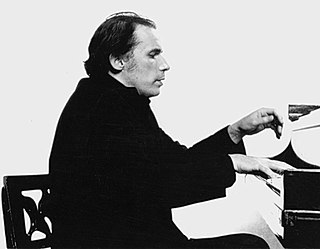
Property is a system of rights that gives people legal control of valuable things, and also refers to the valuable things themselves. Depending on the nature of the property, an owner of property may have the right to consume, alter, share, redefine, rent, mortgage, pawn, sell, exchange, transfer, give away, or destroy it, or to exclude others from doing these things, as well as to perhaps abandon it; whereas regardless of the nature of the property, the owner thereof has the right to properly use it under the granted property rights.
Property law is the area of law that governs the various forms of ownership in real property (land) and personal property. Property refers to legally protected claims to resources, such as land and personal property, including intellectual property. Property can be exchanged through contract law, and if property is violated, one could sue under tort law to protect it.
A tort is a civil wrong that causes a claimant to suffer loss or harm, resulting in legal liability for the person who commits the tortious act. Tort law can be contrasted with criminal law, which deals with criminal wrongs that are punishable by the state. While criminal law aims to punish individuals who commit crimes, tort law aims to compensate individuals who suffer harm as a result of the actions of others. Some wrongful acts, such as assault and battery, can result in both a civil lawsuit and a criminal prosecution in countries where the civil and criminal legal systems are separate. Tort law may also be contrasted with contract law, which provides civil remedies after breach of a duty that arises from a contract. Obligations in both tort and criminal law are more fundamental and are imposed regardless of whether the parties have a contract.
Ownership is the state or fact of legal possession and control over property, which may be any asset, tangible or intangible. Ownership can involve multiple rights, collectively referred to as title, which may be separated and held by different parties.
Trespass is an area of tort law broadly divided into three groups: trespass to the person, trespass to chattels, and trespass to land.
In law, a legal person is any person or 'thing' that can do the things a human person is usually able to do in law – such as enter into contracts, sue and be sued, own property, and so on. The reason for the term "legal person" is that some legal persons are not people: companies and corporations are "persons" legally speaking, but they are not people in a literal sense.
Personality rights, sometimes referred to as the right of publicity, are rights for an individual to control the commercial use of their identity, such as name, image, likeness, or other unequivocal identifiers. They are generally considered as property rights, rather than personal rights, and so the validity of personality rights of publicity may survive the death of the individual to varying degrees, depending on the jurisdiction.
The right to privacy is an element of various legal traditions that intends to restrain governmental and private actions that threaten the privacy of individuals. Over 150 national constitutions mention the right to privacy. On 10 December 1948, the United Nations General Assembly adopted the Universal Declaration of Human Rights (UDHR), originally written to guarantee individual rights of everyone everywhere; while right to privacy does not appear in the document, many interpret this through Article 12, which states: "No one shall be subjected to arbitrary interference with his privacy, family, home or correspondence, nor to attacks upon his honour and reputation. Everyone has the right to the protection of the law against such interference or attacks."

Self-ownership is the concept of property in one's own body, often expressed as the moral or natural right of a person to have bodily integrity meaning the exclusive right to control one's own body including one's life, where 'control' means exerting any physical interference and 'exclusive' means having the right to install and enforce a ban on other people doing this. Since the legal norm of property title claim incapacitates other people from claiming property title over the same resource at the same time, the right to control or interfere with one's own body in any arbitrary way is secured. Anarcho-capitalism defines self-ownership as the exclusive right to control one's body as long as the owner does not aggress upon others, leading to the concept of the sovereign individual. In Minarchism the 'exclusive right' is understood by separating the 'liberty-to' from the 'liberty-from' where for each person the 'liberty-to' is restricted by all the 'liberty's-from' of others, effectively subjecting the 'liberty-to' to the ban on the usage of force. Thereafter self-ownership means the exclusive right to control one's body insofar considering action between inhabitants and not involving the state, making it roughly a pacifist morality only among inhabitants. Self-ownership is a central idea in several political philosophies that emphasize individualism, such as libertarianism and liberalism.

Privacy laws of the United States deal with several different legal concepts. One is the invasion of privacy, a tort based in common law allowing an aggrieved party to bring a lawsuit against an individual who unlawfully intrudes into their private affairs, discloses their private information, publicizes them in a false light, or appropriates their name for personal gain.

Delict in Scots law is the area of law concerned with those civil wrongs which are actionable before the Scottish courts. The Scots use of the term 'delict' is consistent with the jurisdiction's connection with Civilian jurisprudence; Scots private law has a 'mixed' character, blending together elements borrowed from Civil law and Common law, as well as indigenous Scottish developments. The term tort law, or 'law of torts', is used in Anglo-American jurisdictions to describe the area of law in those systems. Unlike in a system of torts, the Scots law of delict operates on broad principles of liability for wrongdoing: 'there is no such thing as an exhaustive list of named delicts in the law of Scotland. If the conduct complained of appears to be wrongful, the law of Scotland will afford a remedy even if there has not been any previous instance of a remedy being given in similar circumstances'. While some terms such as assault and defamation are used in systems of tort law, their technical meanings differ in Scottish delict.

Gould Estate v Stoddart Publishing Co Ltd (1998), 39 OR 555, is a Canadian case on appropriation of personality, the ownership of copyright, and requirements of fixation.
In the United States Code, the term color of law describes and defines an official action that has either a “mere semblance of legal right”, or the “pretense of right”, or the “appearance of right”, which adjusts and colors the law to the circumstance, whilst the apparently legal action is itself illegal. In U.S. and U.K. jurisprudence, an action realized under color of law is an act realized by an official as if he or she were authorized to take the apparently legal action not authorized by statute.

Canadian tort law is composed of two parallel systems: a common law framework outside Québec and a civil law framework within Québec. Outside Québec, Canadian tort law originally derives from that of England and Wales but has developed distinctly since Canadian Confederation in 1867 and has been influenced by jurisprudence in other common law jurisdictions. Meanwhile, while private law as a whole in Québec was originally derived from that which existed in France at the time of Québec's annexation into the British Empire, it was overhauled and codified first in the Civil Code of Lower Canada and later in the current Civil Code of Quebec, which codifies most elements of tort law as part of its provisions on the broader law of obligations. As most aspects of tort law in Canada are the subject of provincial jurisdiction under the Canadian Constitution, tort law varies even between the country's common law provinces and territories.
The right of patronage in Roman Catholic canon law is a set of rights and obligations of someone, known as the patron in connection with a gift of land (benefice). It is a grant made by the church out of gratitude towards a benefactor.
"Author's rights" is a term frequently used in connection with laws about intellectual property.

Ius or Jus in ancient Rome was a right to which a citizen (civis) was entitled by virtue of his citizenship (civitas). The iura were specified by laws, so ius sometimes meant law. As one went to the law courts to sue for one's rights, ius also meant justice and the place where justice was sought.
The following outline is provided as an overview of and introduction to tort law in common law jurisdictions:
Ius in re, or jus in re, under civil law, more commonly referred to as a real right or right in rem, is a right in property, known as an interest under common law. A real right vests in a person with respect to property, inherent in his relation to it, and is good against the world. The primary real right is ownership (dominium). Whether possession (possessio) is recognized as a real right, or merely as a source of certain powers and actions, depends on the legal system at hand. Subordinate or limited real rights generally refer to encumbrances, rights of use and security interests. The term right in rem is derived from the action given to its holder, an actio in rem. In Latin grammar the action against the thing demands a fourth case. The underlying right itself, ius in re, has a fifth case, as the right rests on, or burdens, the thing. By mistake the common law terminology now uses the fourth case for describing the right itself. Compare jus ad rem.

Tort law in India is primarily governed by judicial precedent as in other common law jurisdictions, supplemented by statutes governing damages, civil procedure, and codifying common law torts. As in other common law jurisdictions, a tort is breach of a non-contractual duty which has caused damage to the plaintiff giving rise to a civil cause of action and for which remedy is available. If a remedy does not exist, a tort has not been committed since the rationale of tort law is to provide a remedy to the person who has been wronged.








